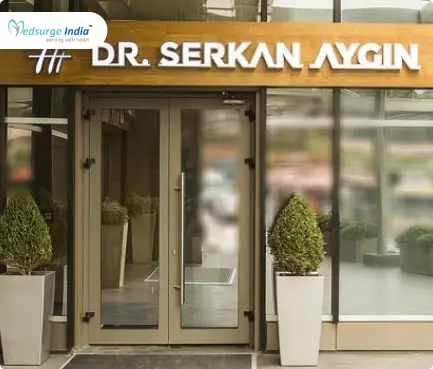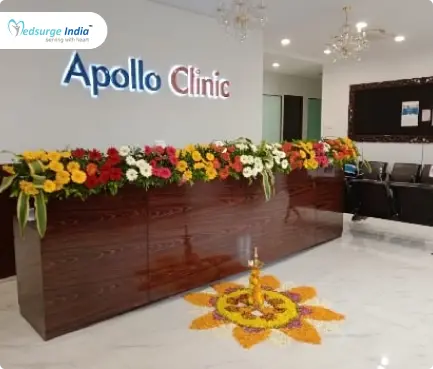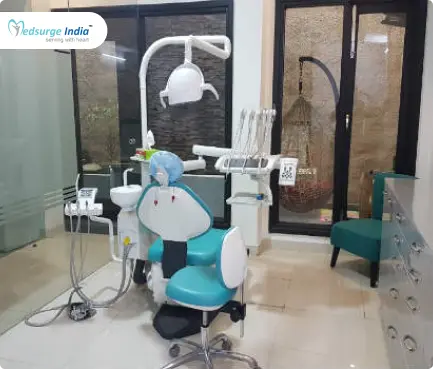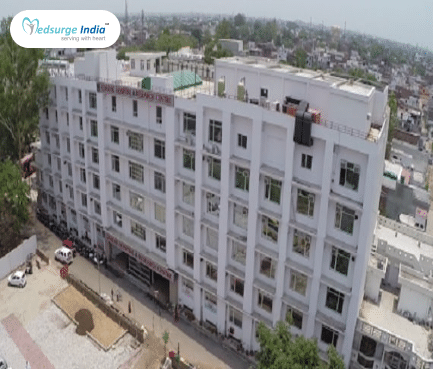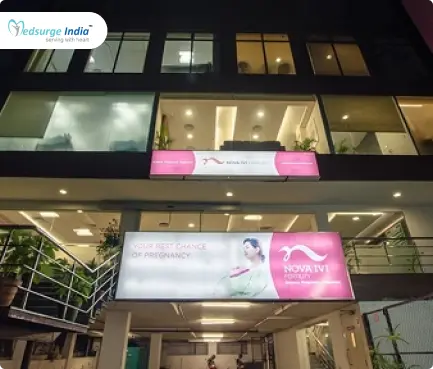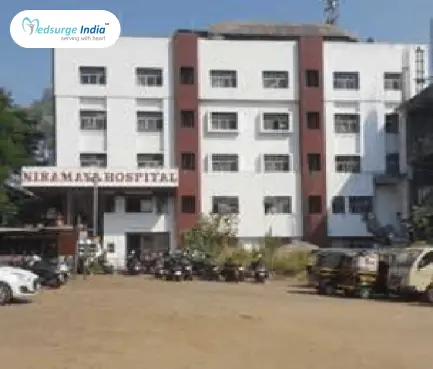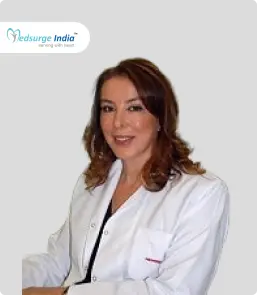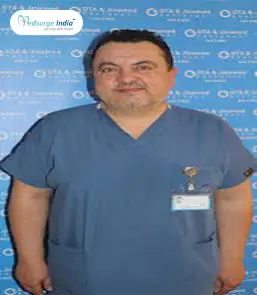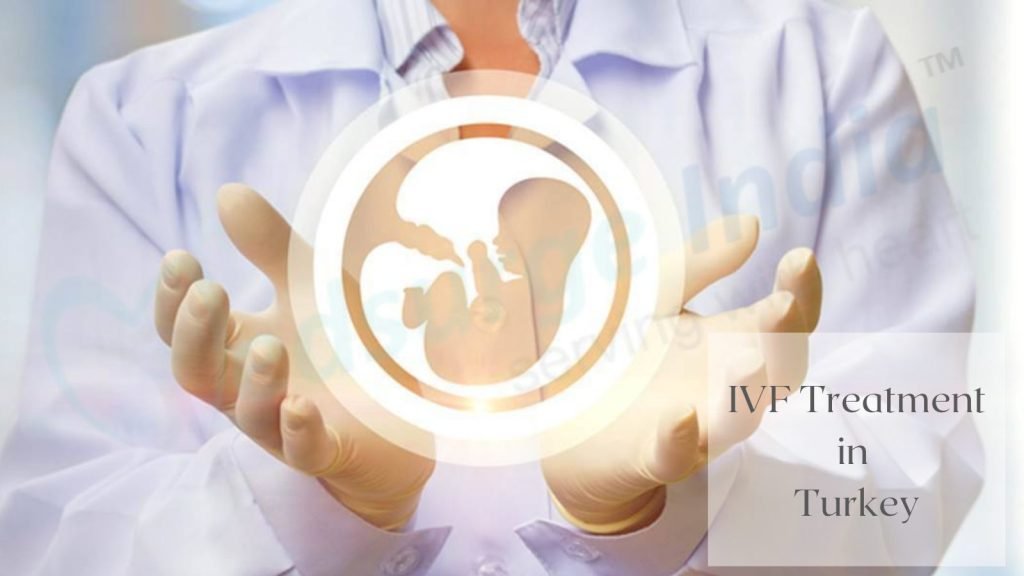
Infertility is a frequent concern for people all around the world, and it can affect both men and women. In vitro fertilization or IVF, is the most common reproductive medicine procedure aimed at assisting couples who have been unsuccessful in conceiving naturally after multiple attempts.
It entails a combination of medical treatments and invasive procedures, with the goal of achieving a viable pregnancy. IVF is now being used for genetic screening and to help avoid some types of congenital malformations, thanks to major breakthroughs in the field of reproductive treatment.
Although IVF Treatment in Turkey is a safe process that has acquired a lot of popularity, its success is dependent on a number of medical and personal factors.
It’s possible that some patients will need many IVF cycles to conceive. Other assisted reproductive procedures, such as ICSI, genetic screening, donor eggs, and others, can be used in conjunction with it.
IVF treatment cost in Turkey is quite affordable. The nation is recognized for offering high-quality, affordable medical care. The greatest facilities are accessible with reasonable healthcare packages, premium medical tools, and the assurance of first-rate medical professionals for people traveling for IVF treatment in Turkey.
What Is In-Vitro Fertilization
In vitro fertilization (IVF) is a sophisticated set of treatments used to aid in the creation of a child or help with fertility or prevent genetic defects.
In IVF, mature eggs are extracted (retrieved) from the ovaries and fertilized in a laboratory with sperm. The fertilized egg (embryo) or eggs (embryos) are then transported to a uterus for further development. IVF takes roughly three weeks to complete. When these processes are broken down into smaller chunks, the procedure can take longer.
The most efficient form of assisted reproduction technology is IVF Treatment in Turkey. A couple’s own eggs and sperm can be used in the operation. Eggs, sperm, or embryos from a known or anonymous donor may be used in IVF. A gestational carrier, or someone who has an embryo implanted in their uterus, may be employed in some instances.
Why Do People Prefer Turkey for IVF Treatment
Every year, a large number of people travel to Turkey for IVF treatment or other forms of assisted reproductive technology. Patients benefit from affordable packages and great success rates at internationally approved hospitals and reproductive clinics with highly qualified IVF doctors.
There are multiple best IVF hospitals in Turkey, which serve both domestic and international patients and are located in various cities. Here are a few considerations to consider while choosing a hospital or clinic:
- The IVF center’s clinical outcomes include information about how many successful IVF procedures the hospital performs each year.
- Accreditations and affiliations of the hospital or clinic with reputable national and international organizations like the Joint Commission International (JCI)
- A wide range of infertility treatment services and assisted reproductive technologies are available.
- The most up-to-date technologies in the field of IVF can assist boost the chances of a successful pregnancy
- In Turkey, they have a highly experienced staff of reproductive medicine and IVF specialists that have years of experience and skill in a variety of treatments.
- In the embryology laboratory, there are experienced and well-trained personnel.
Selecting an international medical center that offers unique services to international patients may make the overall journey more comfortable for a medical traveler.
From visa processing to travel preparations to appointment scheduling and lodging, the foreign patient department at the finest IVF hospitals in Turkey assists and coordinates with the patient throughout the process.
IVF Treatment Cost In Turkey | Procedure
The average IVF treatment costs in Turkey start from USD 3300. The therapy is an outpatient procedure, and patients typically stay in India for at least 7 days for men and 45 days for women. Before undergoing IVF, various tests are required, including the AMH Test, Sperm Count Test, S. FSH, S. LH, S. Estradiol, and S. Progesterone.
Age is a crucial determinant of success in IVF. For females under 35, the achievement rate is around 55-60%, while for those over 35, it is generally 40-45%. The success rates have significantly improved with the use of advanced techniques such as Embryoscope, ERA, and others, contributing to a rise of approximately 10-12% in the success of IVF.
Cost of IVF Treatment in Different Cities in Turkey
| Cities | Starting Price |
| Istanbul | USD 3400 |
| Ankara | USD 3500 |
| Antalya | USD 3300 |
| Izmir | USD 3300 |
| Bursa | USD 3200 |
| Adana | USD 3400 |
Please note that the pricing of the treatment can vary depending on various factors.
IVF Treatment In Turkey
In vitro fertilization (IVF) is a set of complicated operations including the fertilization of eggs and sperm in a laboratory, followed by embryo implantation and possibly pregnancy.
Factors Affecting IVF Treatment Cost in Turkey
IVF treatment in Turkey is the best and is more affordable when compared with Western countries including Brazil, Thailand, and Mexico. Prices of IVF treatment in Turkey is based on Many Different variables such as
- The clinic, the individual chooses. There are lots of IVF facilities in Bangalore that provide cheap, cheapest IVF treatment using a high success rate. Indira IVF Heart is just one of the very best fertility IVF facilities offering many fertility treatment alternatives like low sperm count.
- Fee for the group of physicians
- Standard diagnostic and test processes.
- The total cost of this Process.
- Price of this follow-up care needed after the procedure.
- IVF treatment cost in Turkey can depend on the type of hospital and rooms you stay.
Talk to the experts at Medsurge India and get the best and most affordable IVF Treatment cost in Turkey under the supervision of a trained and specialized team of doctors.
Get Free Cost Estimation
Procedure
What Is the Process of In-Vitro Fertilization
In vitro fertilization (IVF) is a set of complicated operations including the fertilization of eggs and sperm in a laboratory, followed by embryo implantation and possibly pregnancy.
The eggs produced by the ovaries are harvested using special needles in a simple surgery and then mixed with sperm from the male partner in a petri dish for fertilization.
The embryo(s) is/are transplanted into the uterus of the woman, where it can grow and implant effectively during the pregnancy.
A ‘test-tube baby’ was the name given to a child created through IVF. This process normally requires more than one egg to be collected, and it is done under anesthesia with the help of an ultrasound guidance device.
The success rate of IVF treatment is determined by the couple’s fertility and health-related features. Ovarian reserve, age, serious male sperm factor, and overall health of the women are all factors that influence IVF success rates. In IVF, couples have the option of using donor eggs or sperm.
Surrogacy is also a possibility for women who are unable to carry a pregnancy owing to health issues or other considerations. To boost the chances of conception, artificial insemination or intracytoplasmic sperm injection (ICSI) procedures might be used.
What Are the Steps Involved in IVF in Turkey
Patients undertake several screening procedures and medical examinations before beginning an IVF cycle to analyze the eggs and sperm of the female and male partners.
The following are some of the tests performed during the pre-treatment phase:
- Hormone Evaluation
- Ovarian Reserve Test
- Semen Analysis
- Screening for Infection causing agents
- Uterine Examination
The following are the basic steps in an IVF procedure:
- Stimulation of follicular maturation
- Eggs are collected or retrieved.
- sperm sample collection
- Fertilization in a lab setting
- Embryo donation
- Test for pregnancy
There are primarily two IVF protocols: When choosing the optimal treatment protocol and drug dose for patients who will get in vitro fertilization therapy, factors such as the woman’s age, ovarian reserve, blood hormone levels, and body mass index are taken into account.
- Long-Term Protocol: For 10 to 12 days, the drugs are used to induce ovulation activities. When the patient starts menstruation, the second phase of treatment begins, and hormone therapy is continued for an average of 8 to 10 days. This is to guarantee that the eggs mature properly. Following that, the eggs are collected.
- Short-Term Protocol: Hormones for egg maturation begin on the second to the third day of menstruation in this case. Ovarian suppression hormones will be introduced to the therapy process in the coming days to stop the ovaries from secreting hormones.
The patients’ blood hormone levels will be tested, and vaginal ultrasonography will be used to keep an eye on the follicles. Human chorionic gonadotropin is given to the eggs when they reach the proper size, and they are picked up later that day or the next.
What Are the Possible Consequences of IVF Treatment
The fertility medicines used in the IVF process can cause some side effects and complications. The following are some of the probable side effects of such medications:
- Vomiting and nausea
- Breathing difficulties
- Flashes of heat
- Pain in the abdomen
- Irritability or mood swings
- Ovarian enlargement
- Sleeplessness
- Bruising in the area where injections are given on a daily basis
The following are some of the potential risks of IVF:
- Ovarian Hyperstimulation Syndrome
- Risk of Miscarriage
- Complications of the egg retrieval technique
- Multiple births
Some doctors may also do a practice embryo transfer. During this mock embryo transfer, the doctor will evaluate the depth of the uterine cavity and identify the best approach for transferring embryos into the uterus. To get a video consultation for IVF treatment in Turkey, do visit our website Medsurge India.
Best IVF Hospitals in Turkey
- Medicana International Ankara
- Hisar Hospital Intercontinental, Istanbul
- Memorial Hospitals Group, İstanbul
- Medical Park Group, İstanbul
- Emsey Hospital, Pendik, Turkey
What to Look for When Choosing a Hospital For IVF Treatment in Turkey
Turkish hospitals that perform IVF are well-known for their hospitality and patient care services providing the finest hospital and gynecologists in Turkey. However, choosing a suitable hospital for treating IVF in Turkey can be difficult for an international patient. It is a significant decision that must be made with several factors in mind, including:
- Quality certificates and accreditations
- Hospital and transportation facility location
- Team of doctors and surgeons
- Advanced diagnostic and therapeutic equipment
- International patient assistance
How Can Medsurge India Help?
Medsurge India is a prestigious support system for patients looking for doctors, hospitals, and specialized treatments. Our staff will provide you with a list of licensed, renowned, and trustworthy physicians and medical facilities in relation to your medical needs. Additionally, we offer a treatment strategy that fits your budget. Apart, we assist patients with obtaining travel authorizations, medical visas, and a multitude of other things.
The Most Important Frequently Asked Questions
Q: Is Turkey a Good Place for IVF?
A: Turkey has a considerably greater success rate in IVF therapy than any other country in the globe, and its inexpensive costs make it an appealing destination for foreigners, according to the professor. “Prices range from country to country and clinic to clinic.
Q: How Long Does It Take for IVF to Work in Turkey?
A: One cycle of IVF treatment will take roughly four to six weeks to finish in hospitals in Istanbul and Antalya, Ankara, Turkey. Patients will have to wait for their eggs to mature before they can be implanted.
Q: Is It Legal to Donate Eggs in Turkey?
A: In comparison to several European countries, Turkish law is fairly rigorous in terms of who can be treated and what treatments are permitted. Surrogacy, as well as egg, sperm, and embryo donation therapies, are severely illegal in Turkey. It is against the law to treat lesbian couples and single women.
Q: What Is the IVF Success Rate?
A: Most women have 20-35% success rates per cycle, but the chances of becoming pregnant diminish with each subsequent round, while the expense rises. Three full cycles of IVF improve the chances of a successful pregnancy to 45-53%.
Q: Is an IVF Pregnancy a High-Risk Pregnancy?
A: Pregnancy following in vitro fertilization (IVF) is a special type of joy, but it can also increase the chance of certain difficulties. IVF raises the possibility of twins, triplets, or high-order multiples, as well as premature birth, high blood pressure, placental anomalies, and other complications.
Top Hospitals for IVF Treatment in Turkey
Top Doctors for IVF and Infertility
PROF. DR. AYLA AKTULAY
Professor
Experience: 23 years of experience
Medicana International Istanbul
Istanbul, Turkey
Prof. Semra KAHRAMAN
Visiting Consultant
Experience: 29 years of experience
Memorial Hospitals Group, İstanbul
Istanbul, Turkey
Dr. Cenk Ozcan
Consultant
Experience: 23 years of experience
Florence Nightingale Hospital, İstanbul
Istanbul, Turkey

